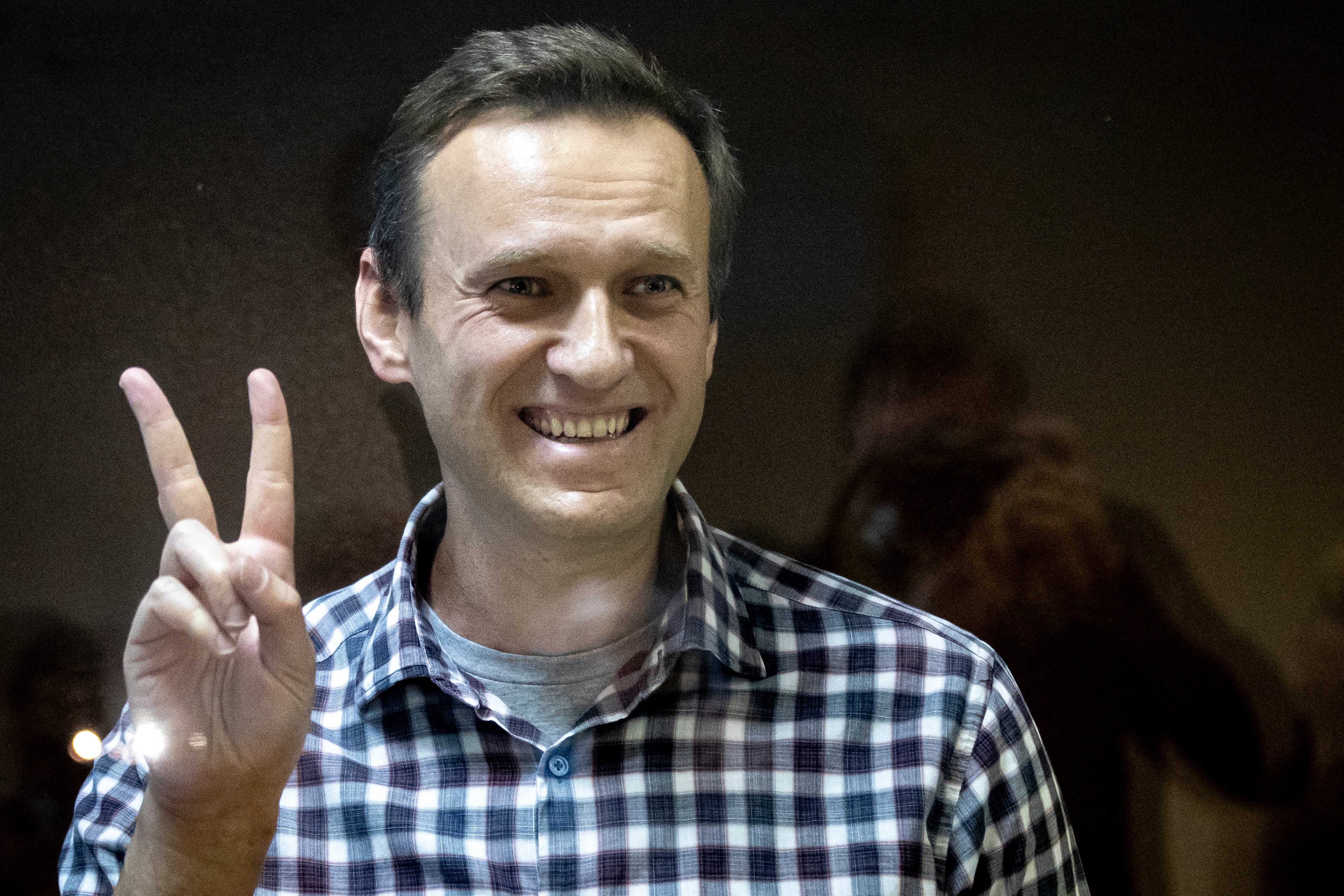Experts urge independent probe into Navalny's poisoning
Two top human rights officials have urged an international probe into the poisoning of Russian opposition leader Alexei Navalny and called for his immediate release from prison

Two top human rights officials urged an international probe into the poisoning of Russian opposition leader Alexei Navalny and called Monday for his immediate release from prison.
Agnès Callamard, the Special U.N. Rapporteur on extrajudicial, summary or arbitrary executions and Irene Khan, the Special U.N. Rapporteur on the promotion and protection of the right to freedom of opinion and expression, said Navalny’s poisoning was intended to “send a clear, sinister warning that this would be the fate of anyone who would criticize and oppose the government.”
“Given the inadequate response of the domestic authorities, the use of prohibited chemical weapons, and the apparent pattern of attempted targeted killings, we believe that an international investigation should be carried out as a matter of urgency in order to establish the facts and clarify all the circumstances concerning Mr. Navalny’s poisoning " they said in a statement.
Navalny, the most prominent critic of Russian President Vladimir Putin, fell sick on Aug. 20 during a domestic flight in Russia and was flown while still in a coma to Berlin for treatment two days later. Labs in Germany France and Sweden, and tests by the Organization for the Prohibition of Chemical Weapons, established that he was exposed to a Soviet-era Novichok nerve agent. Russian authorities have denied any involvement in the poisoning.
In December, Navalny released the recording of a phone call he said he made to a man he described as an alleged member of a group of officers of the Federal Security Service, or FSB, who purportedly poisoned him in August and then tried to cover it up. The FSB dismissed the recording as a fake.
Callamard and Khan on Monday published their official letter sent to the Russian authorities in December and noted that “the availability of Novichok and the expertise required in handling it and in developing a novel form such as that found in Mr. Navalny’s samples could only be found within and amongst state actors.”
The experts emphasized in a statement released by the U.N. that Navalny “was under intensive government surveillance at the time of the attempted killing, making it unlikely that any third party could have administered such a banned chemical without the knowledge of the Russian authorities.”
Navalny was arrested on Jan. 17 upon returning from Germany, where he spent five months recovering from the nerve agent poisoning. The arrest triggered massive protests, to which the Russian authorities responded with a sweeping crackdown.
Last month, Navalny was sentenced to 2 1/2 years in prison for violating the terms of his probation while convalescing in Germany. The sentence stems from a 2014 embezzlement conviction that Navalny has rejected as fabricated — and which the ECHR has ruled to be unlawful.
Last week, Navalny was sent to serve his prison sentence to a prison outside Moscow despite the ECHR's demand for his release.
Russian officials have dismissed demands from the United States and the European Union to free Navalny and stop the crackdown on his supporters.
The rights experts noted that an international probe into Navalny's poisoning is “especially critical” now when he is in prison. They called for his immediate release and reminded Russia that it's “responsible for the care and protection of Mr. Navalny in prison and that it shall be held responsible for any harm that may befall him.”
Bookmark popover
Removed from bookmarks